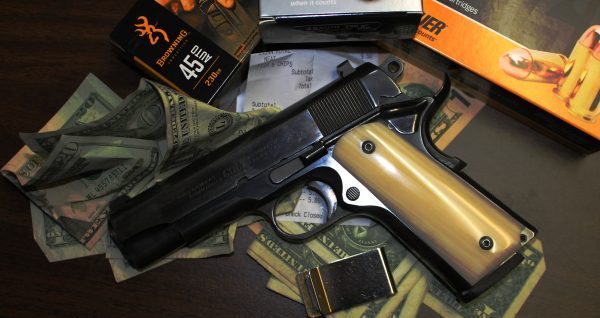
Tuesday’s Seattle Times carried a column by Nicole Brodeur about a shooting that occurred in the Columbia City area of Seattle, which she suggested may have been a “reality check” for that neighborhood, located north of the Rainier Valley.
Brodeur noted that there have been 85 shots-fired reports this year in South Seattle, “and most of them gang-related.”
This begs the question to lame-duck Mayor Ed Murray and the far-left-of-center City Council: How is that “gun violence tax” working out for you? That $25 per firearm, five cents per centerfire cartridge and two cents per rimfire cartridge; the tax that was supposed to generate between $300,000 and $500,000 annually to finance “gun violence” education and reduction programs?
Here’s a little refresher course:
- According to the Seattle Times back in March, the city has actually realized “less than $200,000” in tax revenue, and probably a lot less, though the city is not disclosing the actual amount despite a Public Records Act request by TheGunMag.com and Second Amendment Foundation. They have filed a lawsuit to get an aggregate figure from the city essentially on First Amendment grounds, arguing that the public has a right to know whether the revenue measures up to the forecast.
- According to KOMO in May, “The city has seen a 17 percent increase in the number of police calls about shots fired compared with last year.” At the time of that report, 35 people had been shot in Seattle, a 30-percent increase over the same period in 2016.
The gun tax, which was adopted hastily in 2015 and became effective on Jan. 1, 2016, brought a historic lawsuit against the city by the Second Amendment Foundation, National Rifle Association and National Shooting Sports Foundation, plus two retailers. It is the first time in history that all three major organizations have been partners on a single legal action, arguing that the gun tax violates Washington’s 33-year-old firearms preemption statute.
One of the city’s two major gun stores, and a plaintiff in the lawsuit, has moved out of the city. Precise Shooter moved to Lynnwood, and recently reported that it gets more Seattle customers now than when it was located on Aurora Avenue.
The city reportedly hasn’t spent any of the “less than $200,000” on its gun control program, due to the litigation. Instead, it reportedly took $275,000 from the general fund to launch that effort, which doesn’t appear to have had a positive result.
The increase in shooting incidents in Seattle underscores the faulty nature of another gun control law, Initiative 594, passed in 2014 as the result of a $10.2 million campaign by the Alliance for Gun Responsibility, a Seattle-based gun control organization. Since that measure passed by just under 60 percent of the popular vote, there is no evidence that it prevented a single violent crime.
It certainly didn’t prevent the Cascade Mall shooting in Burlington last Sept. 23 in which five people were killed. The suspect, Arcan Cetin, 20, allegedly took a rifle from his step-father without permission to commit the crime. There was no background check involved in that act, which is what I-594 was all about. Cetin hanged himself in the Snohomish County Jail April 16.